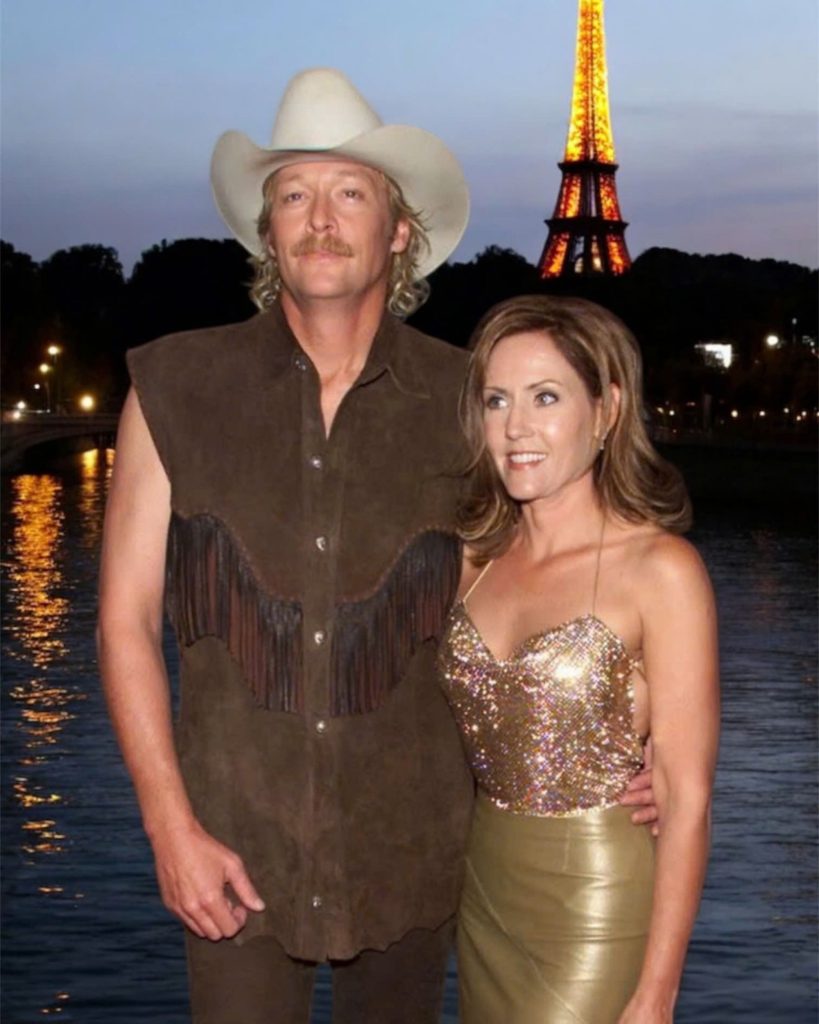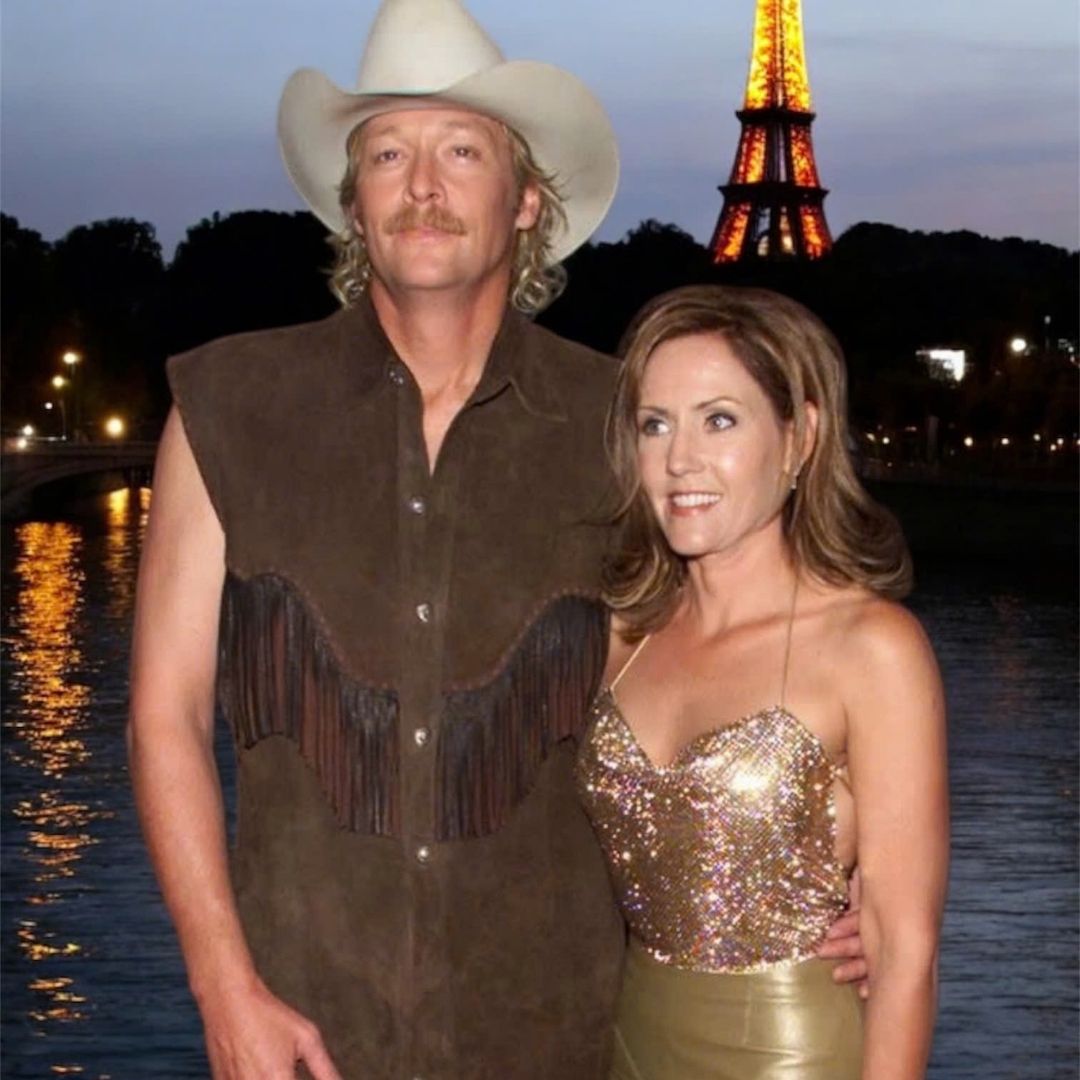
Introduction
I still remember the first time I heard “Dallas” by Alan Jackson. It was a warm summer evening, and I was driving down a dusty backroad with the windows rolled down, the radio crackling with that unmistakable twang of country music. The song came on, and its bittersweet melody hooked me instantly—a tale of love lost to distance and dreams. It wasn’t just the smooth vocals or the pedal steel guitar that got me; it was the story behind it, one that felt personal even though I’d never been to Dallas, Texas, or lost a lover named Dallas. That’s the magic of Alan Jackson—he takes a simple idea and turns it into something universal. Let’s dive into the heart of this country classic.
About The Composition
- Title: Dallas
- Composer: Alan Jackson and Keith Stegall
- Premiere Date: Released in December 1991 as a single
- Album/Opus/Collection: Don’t Rock the Jukebox (1991)
- Genre: Country (Neotraditional Country subgenre)
Background
“Dallas” emerged from a moment of spontaneous inspiration during Alan Jackson’s early rise to fame. According to the liner notes of his 1995 album The Greatest Hits Collection, the song was born after Jackson performed at Billy Bob’s Texas, a legendary honky-tonk in Fort Worth. Exhausted from the gig and perhaps a little homesick for his native Georgia, he quipped that he “wished Dallas was in Tennessee.” That offhand remark, paired with his collaboration with producer Keith Stegall, blossomed into a number-one hit. Released as the third single from his sophomore album Don’t Rock the Jukebox, “Dallas” cemented Jackson’s reputation as a master of neotraditional country—a style that honors the genre’s roots while keeping it fresh for the early ‘90s audience.
The song hit the airwaves in December 1991, peaking at number one on both the Billboard Hot Country Singles & Tracks chart and the Canadian RPM Country Tracks chart. It was Jackson’s fourth consecutive chart-topper from the album, a testament to his growing dominance in country music. Critics and fans alike praised its simplicity and emotional resonance, with Kevin John Coyne of Country Universe later giving it a B+ for its clever lyrics and Jackson’s warm delivery. Within Jackson’s repertoire, “Dallas” stands as a pivotal piece, showcasing his knack for blending personal anecdotes with relatable storytelling.
Musical Style
“Dallas” is a quintessential country ballad, marked by its mid-tempo rhythm and a generous dose of pedal steel guitar that weaves through the track like a sigh of longing. The structure is straightforward—verse-chorus-verse—allowing the narrative to take center stage. Jackson’s smooth, agreeable vocals carry the melody with an effortless charm, while the instrumentation (featuring acoustic guitar, fiddle, and subtle percussion) stays true to the neotraditional country ethos: honest, unpolished, and heartfelt. The pedal steel, in particular, adds a mournful texture that amplifies the song’s emotional weight, making it linger in your mind long after the last note fades. It’s not flashy or complex, but that’s its strength—its simplicity mirrors the raw ache of the story it tells.
Lyrics/Libretto
The lyrics of “Dallas” tell a deceptively simple tale: a man laments the departure of his lover, Dallas, who’s left him for the city of Dallas, Texas. The double meaning is clever yet poignant—“I said, ‘Dallas, my darlin’, don’t leave me this way’ / She said, ‘I’m goin’ to Dallas, I’ve made up my mind.’” The narrator’s heartache is palpable as he wishes both the woman and the city were closer to home, ideally in Tennessee. Themes of love, loss, and geographic separation resonate throughout, paired with a subtle undercurrent of resignation. The music complements this perfectly—the slow, steady tempo mirrors the narrator’s heavy heart, while the pedal steel cries out like an echo of his unspoken pleas. It’s a story of everyday heartbreak, elevated by Jackson’s ability to make the personal feel universal.
Performance History
Since its release, “Dallas” has been a staple in Alan Jackson’s live performances, often met with enthusiastic singalongs from fans who connect with its relatable narrative. It debuted on the U.S. charts in late 1991 and quickly climbed to number one, holding that spot in early 1992—a sign of its immediate impact. Over the years, it’s remained a fan favorite, featured on The Greatest Hits Collection (1995) and performed during Jackson’s tours well into the 2000s and beyond. While specific standout performances aren’t widely documented, its consistent presence in his setlists speaks to its enduring popularity. Critics have lauded its staying power, with its initial warm reception evolving into a quiet reverence as a classic in Jackson’s catalog.
Cultural Impact
“Dallas” may not have sparked a cultural revolution, but its influence ripples through country music and beyond. It’s a prime example of neotraditional country’s resurgence in the early ‘90s, a time when artists like Jackson pushed back against the genre’s pop-leaning tendencies. The song’s clever wordplay and emotional authenticity have inspired countless covers and tributes by aspiring country artists. Beyond music, its evocation of Dallas, Texas, taps into the American fascination with the Lone Star State—think cowboy hats, wide-open plains, and big dreams. While it hasn’t been heavily featured in film or TV, its spirit lives on in the ethos of road-trip playlists and jukebox spins, a quiet but persistent thread in country culture.
Legacy
More than three decades after its release, “Dallas” remains a touchstone in Alan Jackson’s legacy and the broader country music canon. It’s a reminder of his gift for turning fleeting moments into timeless songs, a skill that’s kept him relevant through changing musical tides. Today, it resonates with listeners who’ve felt the sting of distance—whether it’s a lover, a hometown, or a dream just out of reach. Its relevance lies in its universality; it’s as much a story of 1991 as it is of 2025. For performers, it’s a masterclass in restraint and storytelling, proving you don’t need flashy production to make an impact—just a good hook and a true heart.
Conclusion
“Dallas” is one of those songs that sneaks up on you. It’s not loud or ostentatious, but it stays with you, like a memory you didn’t know you had. As someone who’s always been drawn to music that feels lived-in, I find Jackson’s honesty here irresistible—it’s like he’s sitting across from you, sharing a beer and a story. I urge you to give it a listen, maybe on a drive with the windows down like I did. Check out the original recording from Don’t Rock the Jukebox or catch a live version on YouTube—there’s something special about hearing the crowd sing it back to him. Let “Dallas” take you somewhere, even if it’s just a quiet corner of your own heart
Video
Lyrics
Dallas packed her suitcase
And drove off in the brand new car I bought her
She made leaving me look easy
I wish she’d made it look a little harder
I took her out of Texas
When she was just a girl
But old Tennessee and me
Couldn’t take Texas out of her
Oh, how I wish Dallas was in Tennessee
If I could move Texas east
Then she’d be here with me
Then nothin’ else would come between the two of us
If Dallas was in Tennessee
By now, she’s leaving Memphis
And everything we had behind her
Lord, I hope the gold band on her hand
Will serve as a reminder
That true love is a treasure
That’s very seldom found
But you can’t stay together
If there’s no common ground
Oh, how I wish Dallas was in Tennessee
If I could move Texas east
Then she’d be here with me
Then nothin’ else would come between the two of us
If Dallas was in Tennessee
Oh, if Dallas was in Tennessee
Dallas packed her suitcase
And drove off in the brand new car I bought her
